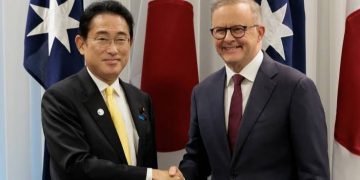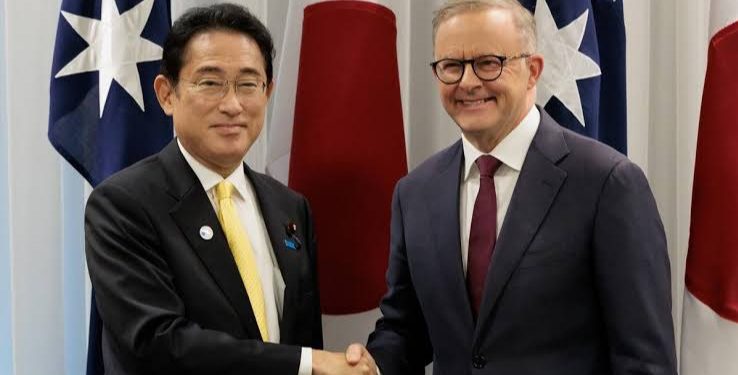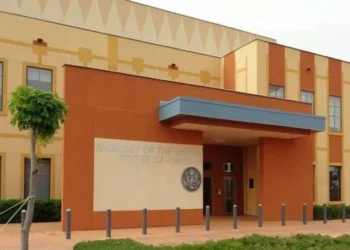By Oyintari Ben
In what is perceived as a security deal intended to offset China’s expanding military footprint in the Asia Pacific, Australia and Japan have agreed to share more intelligence and strengthen their military ties.
At the yearly Australia-Japan Leaders’ Meeting in Perth, Australian Prime Minister Anthony Albanese and his Japanese counterpart Fumio Kishida decided to improve security ties.
Albanese stated that as a result of the increased ties, members of the Japanese military will train and conduct exercises in northern Australia alongside Australian Defence Force soldiers, and that intelligence sharing would increase between the two nations.
The two presidents stated at their fourth summit since Albanese assumed office in May that the pact will act “as a compass” for security cooperation over the following ten years.
In applauding the officially named “Joint Declaration on Security Cooperation,” Albanese noted, “This landmark declaration sends a powerful signal to the area of our strategic alignment.”
The Japanese leader claimed that in “an increasingly dire geopolitical climate,” the two countries have been working to establish a free and open Indo-Pacific.
In order to fulfil his goals, Kishida stated that he was determined to examine all alternatives necessary for national defence, including “counter strike capabilities,” and he would make sure that Japan’s defence budget would be significantly increased.
According to Anthony, “I stated my commitment that all required alternatives for our country’s defence, including the so-called counter strike capability, would be considered and Japan’s defence power will be fundamentally strengthened in the next five years.”
The ties that bind Japan and Australia together have become much stronger as a result of this experience. And our two nations have developed as the main pillar of cooperation among nations with similar viewpoints,” he remarked.
In reaction to China’s expanding military power in the area, Canberra and Tokyo have been concentrating on strengthening security ties. Kishida and Albanese agreed to work on a new bilateral security cooperation agreement in May.




































